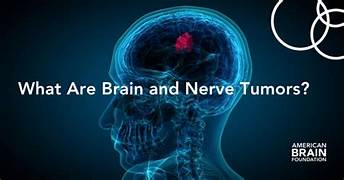How Does a Brain Tumor Affect the Proper Functioning of the Body?
Introduction
The human brain is the control center of the body, responsible for regulating bodily functions, cognition, and emotions. A brain tumor, which is an abnormal growth of cells within the brain, can significantly impact these functions depending on its location, size, and type. Brain tumors may be benign (non-cancerous) or malignant (cancerous), and both can cause severe disruptions to the body’s normal operations. This article explores how brain tumors affect bodily functions, the symptoms they cause, and potential treatment options.
Types of Brain Tumors and Their Impact
Brain tumors are classified into primary tumors (originating in the brain) and secondary tumors (metastatic, spreading from other parts of the body). The effects of a brain tumor depend largely on the area of the brain it affects.
- Frontal Lobe Tumors: Affects reasoning, motor skills, problem-solving, and emotions. Can lead to personality changes, difficulty in movement, and loss of cognitive abilities.
- Temporal Lobe Tumors: Impacts memory, speech, and auditory processing. Patients may experience memory loss, difficulty understanding language, and changes in perception.
- Parietal Lobe Tumors: Interferes with sensory processing and spatial awareness, causing coordination issues and difficulty recognizing objects.
- Occipital Lobe Tumors: Affects vision, leading to partial or complete loss of sight in specific visual fields.
- Cerebellum Tumors: Disrupts balance and coordination, resulting in dizziness, tremors, and difficulty walking.
- Brainstem Tumors: Can impact involuntary functions like breathing, heart rate, and swallowing, often leading to life-threatening complications.
How Brain Tumors Disrupt Body Functions
1. Neurological Impairments
- Brain tumors can exert pressure on nerves and disrupt electrical signaling, leading to seizures, muscle weakness, and sensory loss.
- Compression of the brainstem may result in loss of consciousness and difficulty with reflexive movements.
2. Cognitive and Emotional Changes
- Patients may experience memory loss, confusion, and impaired decision-making.
- Mood swings, depression, anxiety, and aggression are common due to changes in neurotransmitter levels.
3. Motor Dysfunction
- Tumors in motor areas can cause partial or complete paralysis.
- Coordination problems make daily activities like walking and grasping objects difficult.
4. Sensory Impairments
- Vision problems such as blurred sight, double vision, and blind spots occur when the occipital lobe is affected.
- Hearing loss and ringing in the ears (tinnitus) may result from tumors in the auditory pathways.
5. Endocrine System Disruptions
- Tumors affecting the pituitary gland can cause hormonal imbalances, leading to issues such as abnormal growth, metabolism changes, and reproductive problems.
Common Symptoms of Brain Tumors
- Persistent headaches, especially in the morning
- Nausea and vomiting due to increased intracranial pressure
- Unexplained fatigue and weakness
- Speech and language difficulties
- Difficulty swallowing and breathing problems
- Changes in appetite and unexplained weight fluctuations
Diagnosis and Treatment Options
1. Diagnostic Methods
- MRI and CT Scans: Provide detailed imaging to locate and assess the tumor.
- Biopsy: Determines whether the tumor is benign or malignant.
- Neurological Exams: Assess cognitive and motor functions.
2. Treatment Approaches
- Surgery: Often the first option if the tumor is accessible.
- Radiation Therapy: Targets tumor cells to shrink or eliminate them.
- Chemotherapy: Uses drugs to slow tumor growth or destroy cancerous cells.
- Targeted Therapy: Focuses on specific genetic mutations in tumor cells.
Conclusion
Brain tumors can have profound effects on the body, disrupting neurological, cognitive, motor, and sensory functions. Early detection and appropriate treatment are crucial for improving prognosis and quality of life. Advancements in medical technology continue to enhance treatment options, offering hope for patients affected by brain tumors.


